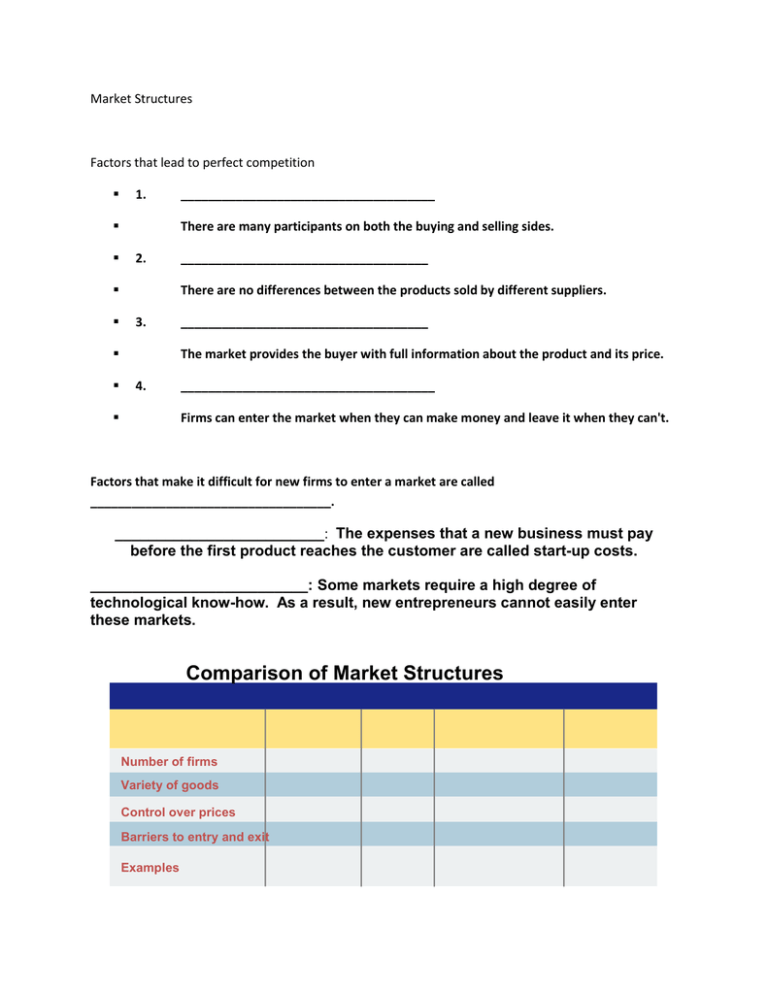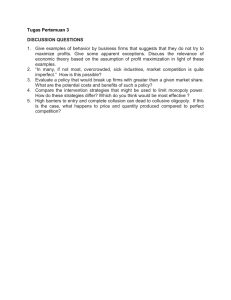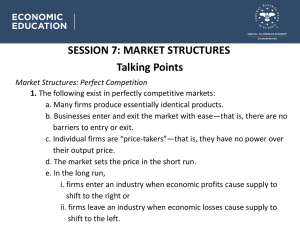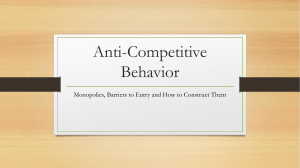Market Structures Factors that lead to perfect competition 1.
advertisement

Market Structures Factors that lead to perfect competition 1. There are many participants on both the buying and selling sides. 2. ____________________________________ There are no differences between the products sold by different suppliers. 3. _____________________________________ ____________________________________ The market provides the buyer with full information about the product and its price. 4. _____________________________________ Firms can enter the market when they can make money and leave it when they can't. Factors that make it difficult for new firms to enter a market are called ___________________________________. _________________________: The expenses that a new business must pay before the first product reaches the customer are called start-up costs. __________________________: Some markets require a high degree of technological know-how. As a result, new entrepreneurs cannot easily enter these markets. Comparison of Market Structures Number of firms Variety of goods Control over prices Barriers to entry and exit Examples Defining a Monopoly A monopoly is a market dominated by a_______________ seller. Monopolies form when________________ prevent firms from entering a market that has a single supplier. Monopolies can take advantage of their monopoly power and charge_____________ prices. TYPES OF MONOPOLIES ____________________________________ The government grants patents, licenses that give the inventor of a new product the exclusive right to sell it for a certain period of time. ______________________________________ A franchise is a contract that gives a single firm the right to sell its goods within an exclusive market. A license is a government-issued right to operate a business. ______________________________________ In rare cases, such as sports leagues, the government allows companies in an industry to restrict the number of firms in the market. Oligopolies A market dominated by a few large firms. Normally, _______________ firms control 70% or more of the market. Government and Competition Government policies keep firms from controlling the prices and supply of important goods. ___________________________are laws that encourage competition in the marketplace. 1. _____________________________ The government has the power to regulate business practices if these practices give too much power to a company that already has few competitors. 2. _____________________________ The government has used anti-trust legislation to break up existing monopolies, such as the Standard Oil Trust and AT&T. 3. _____________________________ A merger is a combination of two or more companies into a single firm. The government can block mergers that would decrease competition. 4. ______________________________ In 1997, new guidelines were introduced for proposed mergers, giving companies an opportunity to show that their merging benefits consumers. __________________________ means that the government no longer decides what role each company can play in a market and how much it can charge its customers _________________________: selling a product below cost in order to drive competitors out of the market







